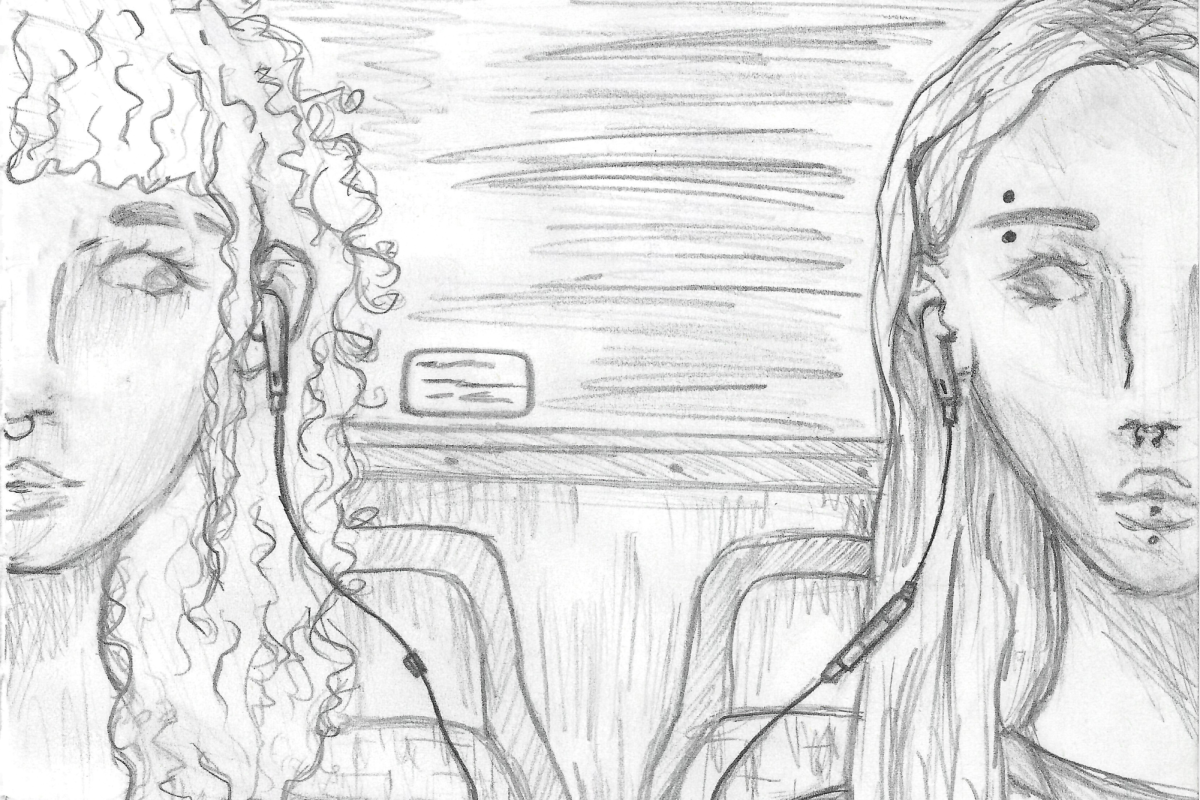1935 graduate remembers her time at South
December 19, 2013
Every item in Audrey Lewis’ home brought up a question about her life. A book of family pictures sat on the coffee table and colourful sculptures made by her late husband filled the yard. For 95, Audrey moved quickly as she went from room to room, gathering newspaper clippings about her accomplishments.
Audrey Lewis graduated from South in 1935 and said she is “[I am] probably the last one left from my class.” We visited her this fall to learn not only about her life, but about South’s past as well.
Since her high school years, she has had a firm interest in writing and storytelling. “I kept journals and all that stuff. I just liked to write,” she said. While at South, she used this passion for writing as an editor for the Southerner.
Her poems and stories won her awards throughout high school and were published in the Southerner. “I wrote all kinds of thing,” Audrey recalled. She even received a one hundred dollar scholarship for her writing. “So what did I do? I went down and bought a three piece suit.”
“I was going to write the great American novel,” she remembered with a laugh. “But that fell by the wayside.”
After graduating from the University of Minnesota, Audrey had a short teaching career, before her boyfriend proposed. “He proposed and I was delighted. And in my time, it was quite all right to stay home and be a mom… There was not nearly the same pressure for girls to succeed and stay with the career orientation…Your only hope was to find a good man, I think.”
Audrey was always unusually motivated for her generation, and planned to go to college. “I think you had to have your mind made up by sophomore year… and I always liked school,” she remembered.
As a college bound student, there were more required classes, leaving less room for electives. “You really didn’t have much choice.. [We] couldn’t take typing, bookkeeping, physical education, or home economics…so I had to take four years of Latin, [which was] wonderfully useless,” she joked.
“[My graduating class] wasn’t very big. I would think probably 50… The classes were small. Probably eight in the physics class. Maybe 25 in English,” she recalled.
As Audrey continued on to college, war was a looming presence for young adults. “Students were worried about the military situation.” Most young men faced the constant threat of being drafted. “That followed us all through college, and my early marriage,” Audrey said.
When her husband was drafted, it was not as bad as they feared. “We had a year in Brooklyn when he was in the service. That was an experience,” remembered Audrey. “We were in the slum clearance project, and my we had a good time – up until they sent him to Japan. I stayed with my mother, back in Minneapolis.”
Despite the threats the draft, students still found ways to have fun. “I had to help a young man who taught me to dance through physics class. In return he took me to sock hops, so it worked out just fine,” Audrey recalled.
“Now and again you went to a drive in movie, which was pretty exciting,” she said. Unlike students today, Audrey and her peers had far fewer extracurricular options. There were not organized competitive athletics for girls. “It was mostly go down to the gym and wear these baggy pants and charge around,” Audrey described.
Instead, Audrey spent a lot of her time after school working on the Southerner. It often featured student poets, including Audrey herself, along with reports on sports games and current events in the school.
Audrey and the rest of The Southerner staff took on the responsibility of keeping the student body informed, which didn’t always work out as well as they hoped.
“One time the sports editor was writing a headline and the game – we were sure we would win. So we made this big headline ‘Once again we win over…’ and we lost. My, did we get into trouble,” she laughed.
Although much has changed throughout the years, the South’s goals remained “The teachers I had were ambitious, and they wanted to steer you in the right direction, and they were qualified, ” Audrey said.
After our conversation, we thanked Audrey, and she walked us to the door. We left her recent issues of The Southerner to look over, and a few weeks later we received this email saying “You [South students] give me hope for today’s youth,” she wrote.





